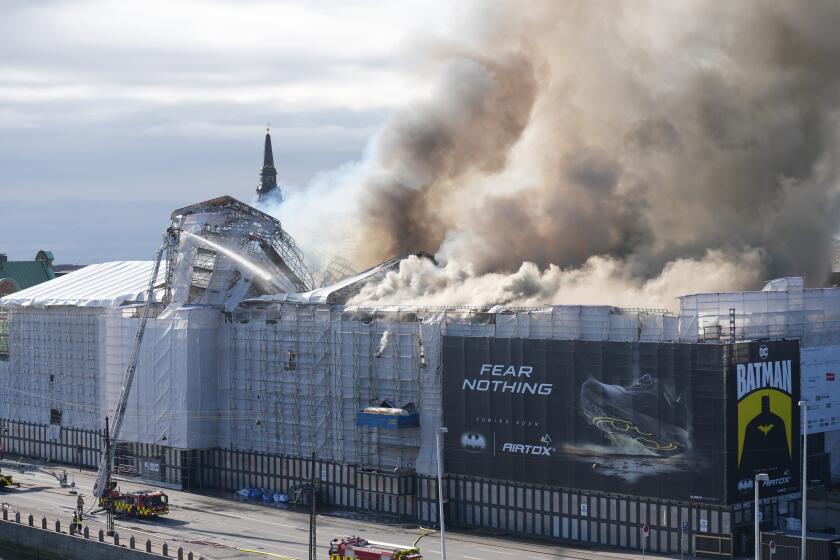China’s Li, a Survivor Cool to Capitalism, Due in U.S. Next Week
Last February, Hu Yaobang, the general secretary of the Chinese Communist Party, told a gathering of party cadres celebrating the lunar new year that China “wasted a whole 20 years” pursuing “ultraleftist stuff” in the days of Mao Tse-tung.
The next day, Chinese President Li Xiannian gave his own New Year’s speech with a markedly different political emphasis. Li exhorted party officials to “earnestly strengthen the building of socialist spiritual civilization and resist and overcome decadent capitalist ideas.”
Li, who will make a state visit to the United States next week, has been playing this sort of quasi-independent role in Chinese Communist Party politics for years. A veteran of the Long March, a top general in the Chinese civil war, a former finance minister and a member of the Politburo since 1956, Li has developed both the credentials to speak out and the sagacity to survive.
Under Mao, Li Xiannian (pronounced Lee Shee-en nee-en) was for years associated with the group of moderate pragmatists within the party leadership. He was appointed Premier Chou En-lai’s finance minister in 1954, taking over the position from another pragmatist named Deng Xiaoping, now China’s leader.
Survived Infighting
Li managed to stay on in this job during the Cultural Revolution, despite accusations by Red Guards that he--like Deng and former President Liu Shao-chi--was guilty of “revisionism.” Li also played a key behind-the-scenes role in the selection of Hua Guofeng as Mao’s successor in 1976, yet succeeded in surviving the factional infighting in which Deng and his supporters took control of the party from Hua four years later.
Now, under Deng, Li is once again regarded as among those within the Communist Party leadership who want to slow down the pace of change in China. This time, he is seeking to put brakes not on Maoist egalitarianism, but on the market-oriented reforms and decentralization of the economy favored by Deng.
“He’s just less enthusiastic about the reform program (than other party leaders),” one Western diplomat here observed recently.
Li, 76, was chosen to be president of China at a session of the National People’s Congress in 1983, the first person to hold the post since Liu Shao-chi. The job itself is a largely ceremonial one, requiring Li to make many official trips overseas. Over the past year, for example, he has visited Romania, Yugoslavia, Spain, Portugal, Burma and Thailand.
To Sign Agreements
Li, who is on an official visit to Canada this week, arrives in the United States at Niagara Falls on Sunday and in Washington on Monday.
While in Washington, Li will sign a fisheries agreement between China and the United States and new accords providing for educational and cultural exchanges between the two countries, according to Peking-based diplomats. He also is expected to discuss issues such as Sino-Soviet relations, Cambodia, North Korea, Taiwan, China’s family-planning policies and Chinese concern over proposed legislation to protect the U.S. textile industry.
During Li’s trip, Chinese and U.S. officials may also sign a proposed agreement on nuclear cooperation that would open the way for U.S. companies to work on nuclear power plants in China. The accord was initialed during President Reagan’s trip here last year, but was then held up because of a dispute over Chinese aid for Pakistan’s nuclear program. That dispute has been resolved because Peking has withdrawn two Chinese scientists who had been working in Pakistan.
More to Read
Start your day right
Sign up for Essential California for news, features and recommendations from the L.A. Times and beyond in your inbox six days a week.
You may occasionally receive promotional content from the Los Angeles Times.






